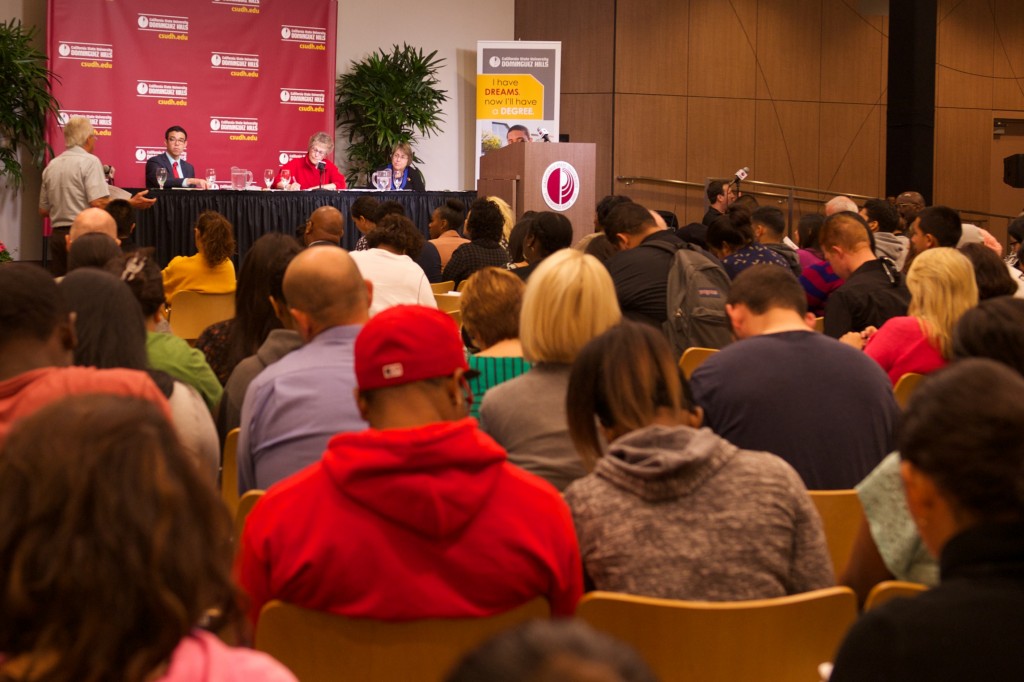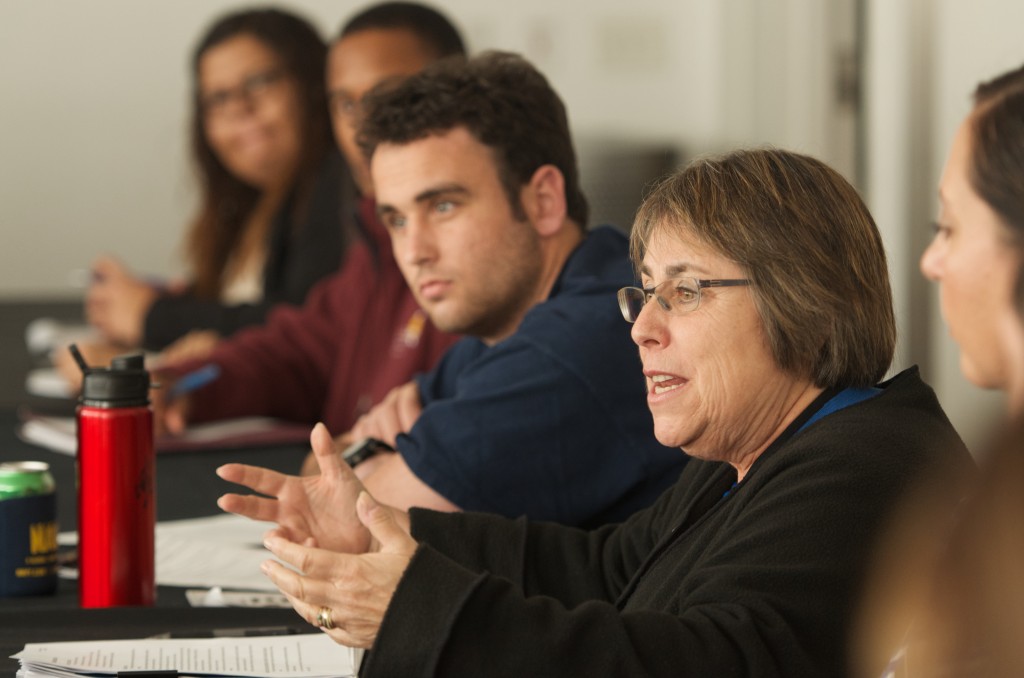In partnership with the California State University Office of the Chancellor, California State University, Dominguez Hills hosted the first in a series of United States Department of Education (DOE) public hearings on President Barack Obama’s College Affordability Initiative on Nov. 6.
The university was one of four higher education institutions in the U.S. selected to host this hearing, which sought feedback from the public on the various components of the president’s higher education plan, including how to develop and implement the new college ratings system.
 “I believe that this campus is an appropriate venue for such a hearing, given our long history of access, affordability, and helping all students–including many disadvantaged students–achieve a quality college education,” University President Willie J. Hagan said in his welcoming remarks.
“I believe that this campus is an appropriate venue for such a hearing, given our long history of access, affordability, and helping all students–including many disadvantaged students–achieve a quality college education,” University President Willie J. Hagan said in his welcoming remarks.
Hagan underscored the importance of the hearing by outlining challenges set upon higher education including unprecedented reductions in resources, rising tuition costs, and determining the role of higher education for the future.
“Despite these issues, everyone agrees on two things: higher education is still the number one vehicle for upward mobility, and an educated workforce is critical for the economic and social vitality of this country,” Hagan noted.
Nearly 50 educational administrators, professors, students, and advocacy groups testified before U.S. Under Secretary for Education Martha Kanter, U.S. Deputy Under Secretary for Education Jamienne Studley, and policy adviser David Soo during the day-long forum.
CSU Dominguez Hills alumna Jimmie Thompson (Class of ’92, B.A., political science; ’94, M.A., negotiation and conflict management) voiced her concerns over the proposed rating system, suggesting that among other issues, consideration should be given to the unique offerings of each of the 23 CSU campuses, so they aren’t “ranked against each other,” and that an appropriate amount of funding should be awarded to ensure a continuation of outstanding programming.
“Let’s make sure that the legislators make a real commitment so that we’re not rating colleges that may be obsolete because funding went away,” she said.
Thompson also stressed the need to address learning outcomes for graduates as they enter the workforce.
“The whole motivation for going to college is the outcome of good, credible employment, sustainable employment,” Thompson asserted. “Are we gearing the curriculum to match up with where the jobs are?”
During a special roundtable discussion led by Kanter as part of the day, students from CSU Dominguez Hills and several other universities spoke candidly, providing a snapshot of everyday issues they face such as rising tuition costs, financial aid and student loan debts, the need for more advising, access to professors (professor-student ratio), and opportunities to participate in internships and conferences.

Kanter asked the students to keep the pressure on legislators to help facilitate positive change.
Correspondingly, while testifying at the hearing, which took place in the Loker Student Union Ballroom, Kate Fawver, chair and associate professor of history, said measures to improve and make higher education accessible to all students are already being practiced at CSU Dominguez Hills and she urged policy makers to listen to what university administrators, faculty, staff, and students have to say about what works in higher education.
She asserted that while the objectives set by the federal government to make higher education affordable are laudable, the “means proposed contradict rather than support the goals,” citing “so-called curricular innovations” such as accelerated three-year degrees, MOOCs (massive open online courses), or flipped and hybrid classes as being “cures worse than the disease.”
Hagan also stressed the importance of making sound decisions moving forward.
“How we strengthen our system of higher education for the benefit of everyone is critical.” Hagan said.